🤬 How You Feel Determines Who Can Influence You
What Are YOUR Emotional Toxins This (S)election Day?
✌️ Sol Luckman here. Enjoy another helpful guest post …
Josh Richardson
In a new study, Stanford psychologists examined why some people respond differently to an upsetting situation and learned that people’s motivations play an important role in how they react.
Being aware of which environments you flourish in can help you improve your relationships with others. There are countless forms of emotional toxins which you can learn to recognize as typical patterns of behavior.
The Stanford study found that when a person wanted to stay calm, they remained relatively unfazed by angry people, but if they wanted to feel angry, then they were highly influenced by angry people.
The researchers also discovered that people who wanted to feel angry also got more emotional when they learned that other people were just as upset as they were, according to the results from a series of laboratory experiments the researchers conducted.
Their findings, published in the JOURNAL OF EXPERIMENTAL PSYCHOLOGY: GENERAL, reveal that people have more control over how their emotions get influenced than previously realized, the researchers said.
“We have long known that people often try to regulate their emotions when they believe that they are unhelpful,” said James Gross, a professor of psychology at Stanford’s School of Humanities and Sciences. “This set of studies extends this insight by showing that people can also regulate the way they are influenced by others’ emotions.”
How Do Other People Influence Emotions?
To learn how people react to upsetting situations and respond to others around them, the researchers examined people’s anger toward politically charged events in a series of laboratory studies with 107 participants. The team also analyzed almost 19 million tweets in response to the police shooting of Michael Brown in Ferguson, Missouri, in 2014.
In the laboratory studies, the researchers showed participants images that could trigger upsetting emotions: for example, people burning the American flag and American soldiers abusing prisoners in Abu Ghraib prison in Iraq. The researchers also told participants how other people felt about these images.
The researchers found that participants who wanted to feel less angry were three times more likely to be more influenced by people expressing calm emotions than by angry people. But participants who wanted to feel angry were also three times more likely to be influenced by other people angrier than them, as opposed to people with calmer emotions. The researchers also found that these participants got more emotional when they learned that others also felt similar emotions to them.
“The degree to which people said they were motivated to feel or not feel certain emotions predicted how much they would be influenced when they were exposed to emotions from other group members,” said Amit Goldenberg, the lead author on the study and a Stanford doctoral candidate in psychology.
Emotional Influence on Social Media
The researchers also looked at social media where they could see how emotions played out in real time. They focused on the unrest that emerged on Twitter following the shooting of Michael Brown in Ferguson, Missouri, in 2014.
After analyzing almost 19 million Twitter posts, the researchers found that Twitter users were more influenced by stronger emotions expressed by people in their social network compared to weaker and calmer reactions. They also found that when Twitter users responded to tweets that were similar in emotional intensity to their earlier reactions, the users amplified their emotions to express stronger outrage than others in their social network.
“The social dimension of emotions, particularly in response to socio-political events, is becoming increasingly important with the use of social media and people’s constant exposure to the emotions of others in online platforms,” wrote the study’s authors, who also included Jamil Zaki, assistant professor of psychology, in the paper.
Emotions as Tools
Researchers have largely assumed that people’s emotions get influenced automatically—in an unconscious, immediate response to other people’s emotions, said Goldenberg. His team’s new research challenges that perspective, he said.
“Our emotions are not passive nor automatic,” Goldenberg said. “They are a little bit of a tool. We have the ability to use our emotions to achieve certain goals. We express certain emotions to convince other people to join our collective cause. On social media, we use emotions to signal to other people that we care about the issues of a group to make sure people know we’re a part of it.”
Further research needs to be done in order to understand the relationship between people and their emotions. One of the next topics Goldenberg says he wants to examine further is whether the desire of people to want to see and experience certain emotions around them lies at the core of how they choose their network of friends and other people around them.
“It seems that the best way to regulate your emotions is to start with the selection of your environment,” Goldenberg said. “If you don’t want to be angry today, one way to do that is to avoid angry people. Do some people have an ingrained preference for stronger emotions than others? That’s one of my next questions.”
This article, republished with permission, originally appeared on the now defunct preventdisease.com.
🐦🔥 Sol Luckman Uncensored is an audience-supported platform that offers unique & cutting-edge resources for increasing energy, expanding consciousness, elevating health & upgrading subscribers’ quality of life.
Premium content valued at over $1K includes:
PragmAlchemy, practical energy & self-bodywork exercises for wellness & beyond, a Sol Luckman Uncensored exclusive (🔜)
Exclusive self-help ebooks & audiobooks for deprogramming limited mindsets, improving mental health & mastering manifestation
International bestselling nonfiction ebooks & audiobooks on the “revolutionary healing science” (NEXUS Magazine) of the Regenetics Method
Award-winning conscious novels & audiobooks focused on themes of empowerment, awakening, lucidity & gnosis
Award-winning humor & bestselling memoir with an emphasis on freethinking, creativity & authenticity
Exclusive indie music albums & videos featuring expansive lyrics & themes for the consciousness crowd
& so much more!
✌️ Sol Luckman here. If you appreciate the labor of love that is my Substack, join other freethinkers seeking to transcend today’s hive mind by not just surviving but THRIVING. Please …
Smash that like button!
Comment!
Share with fellow curious minds!
And if you haven’t already, commit to your own healing & transformation by starting your FREE TRIAL or GOING PAID!




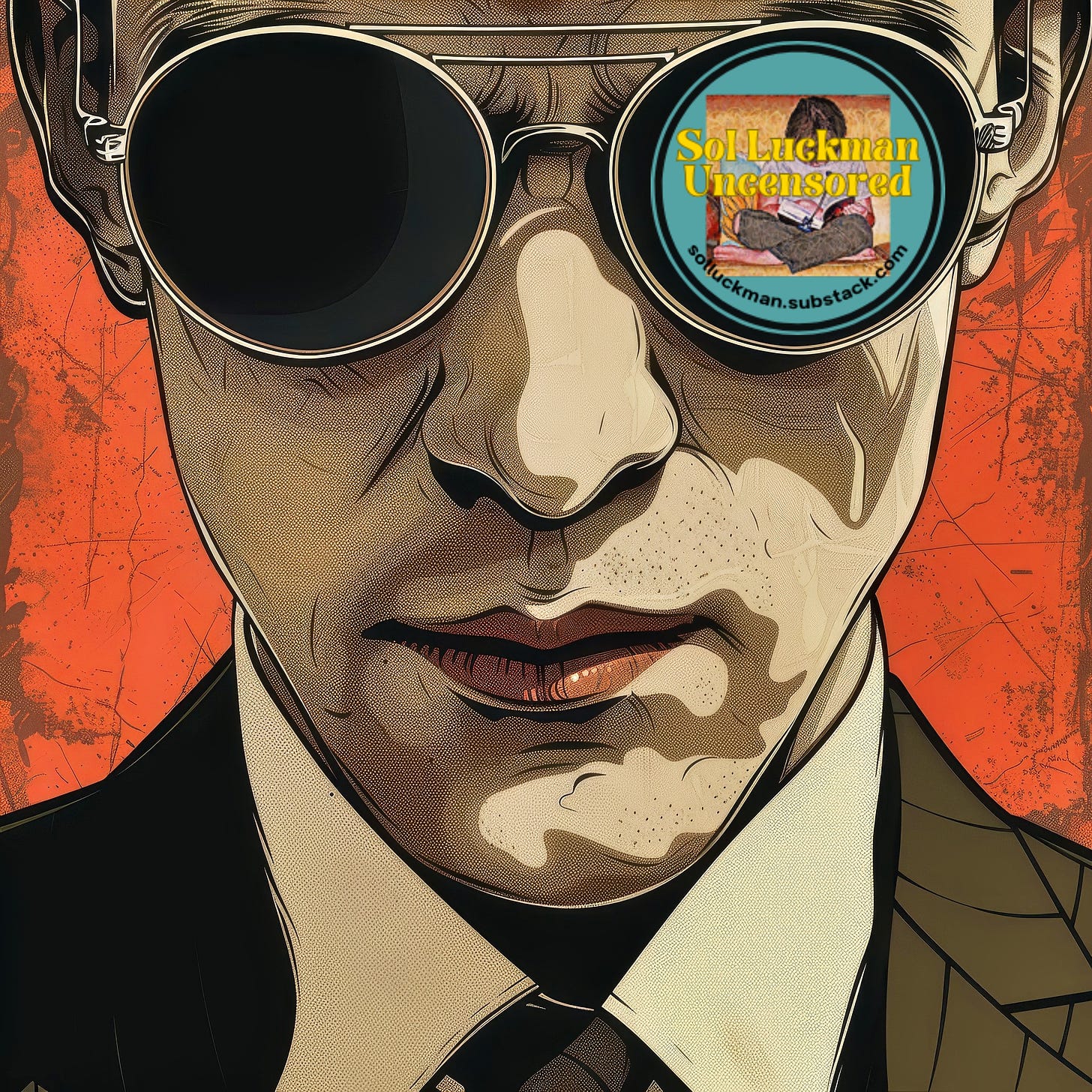

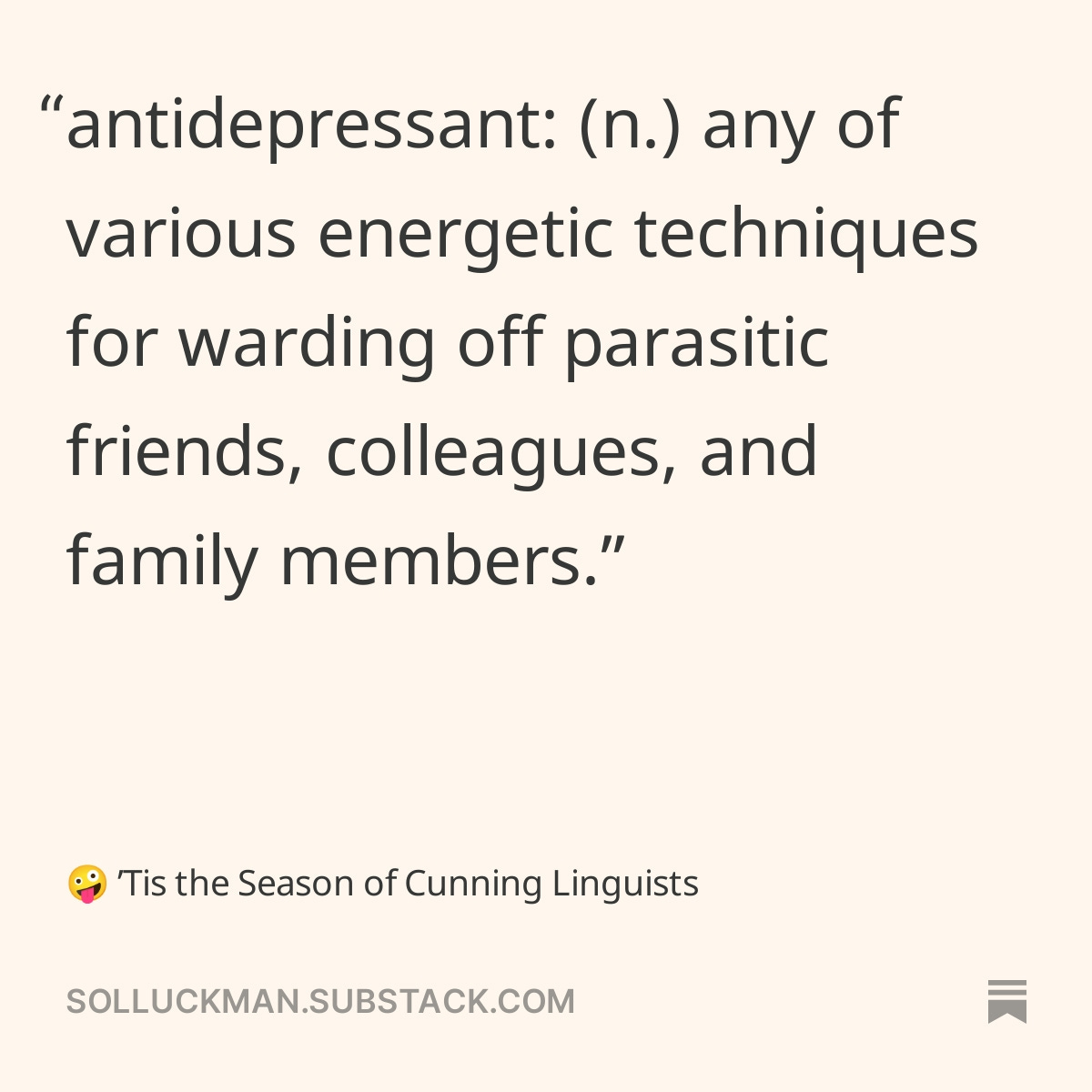



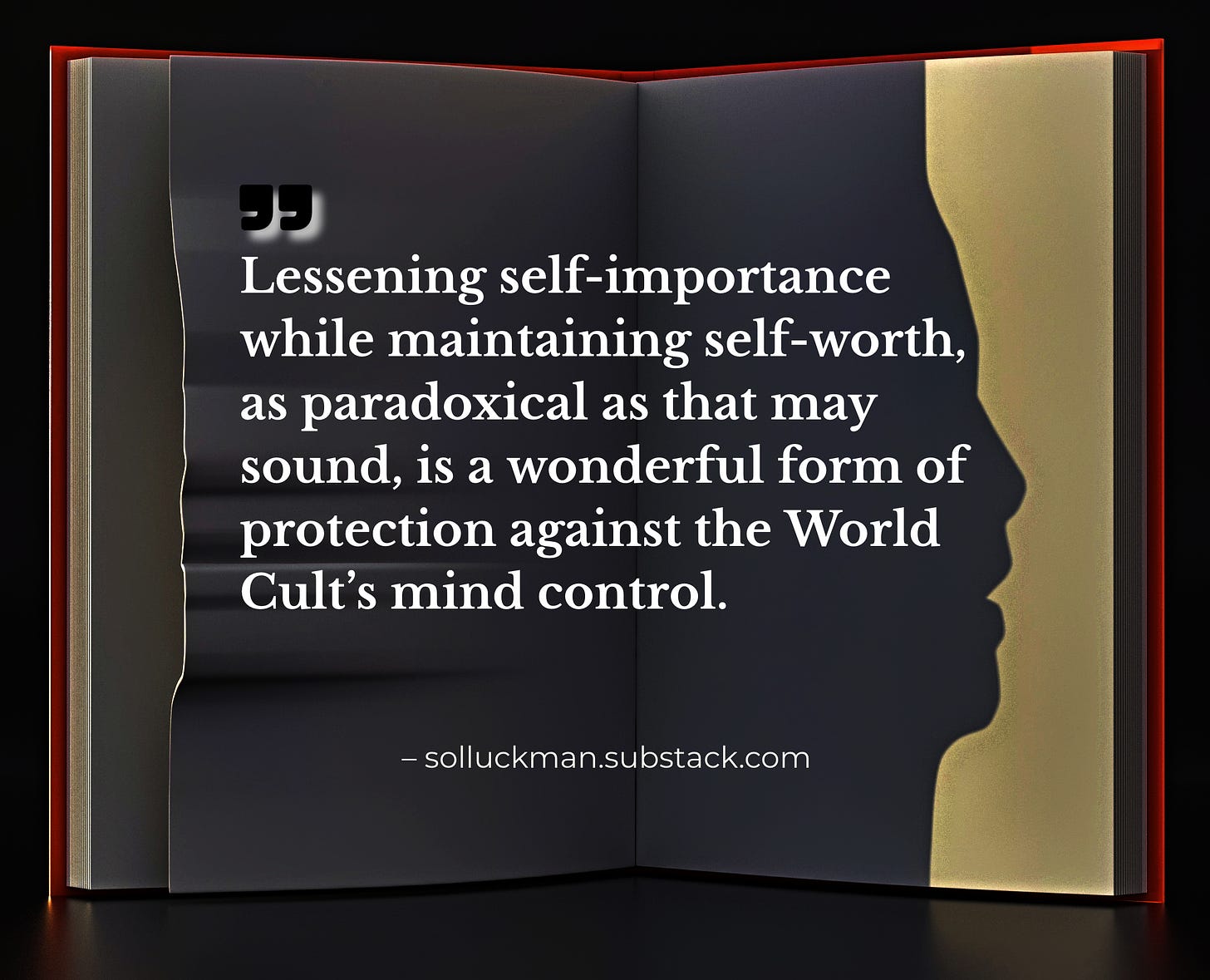
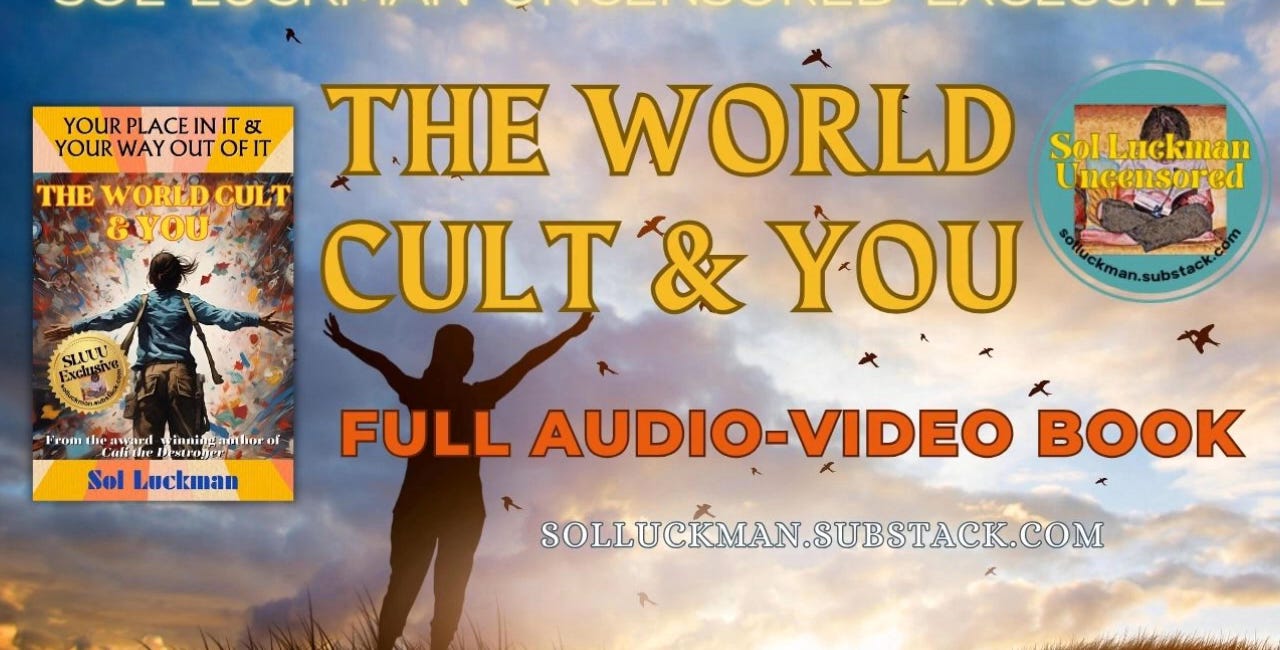
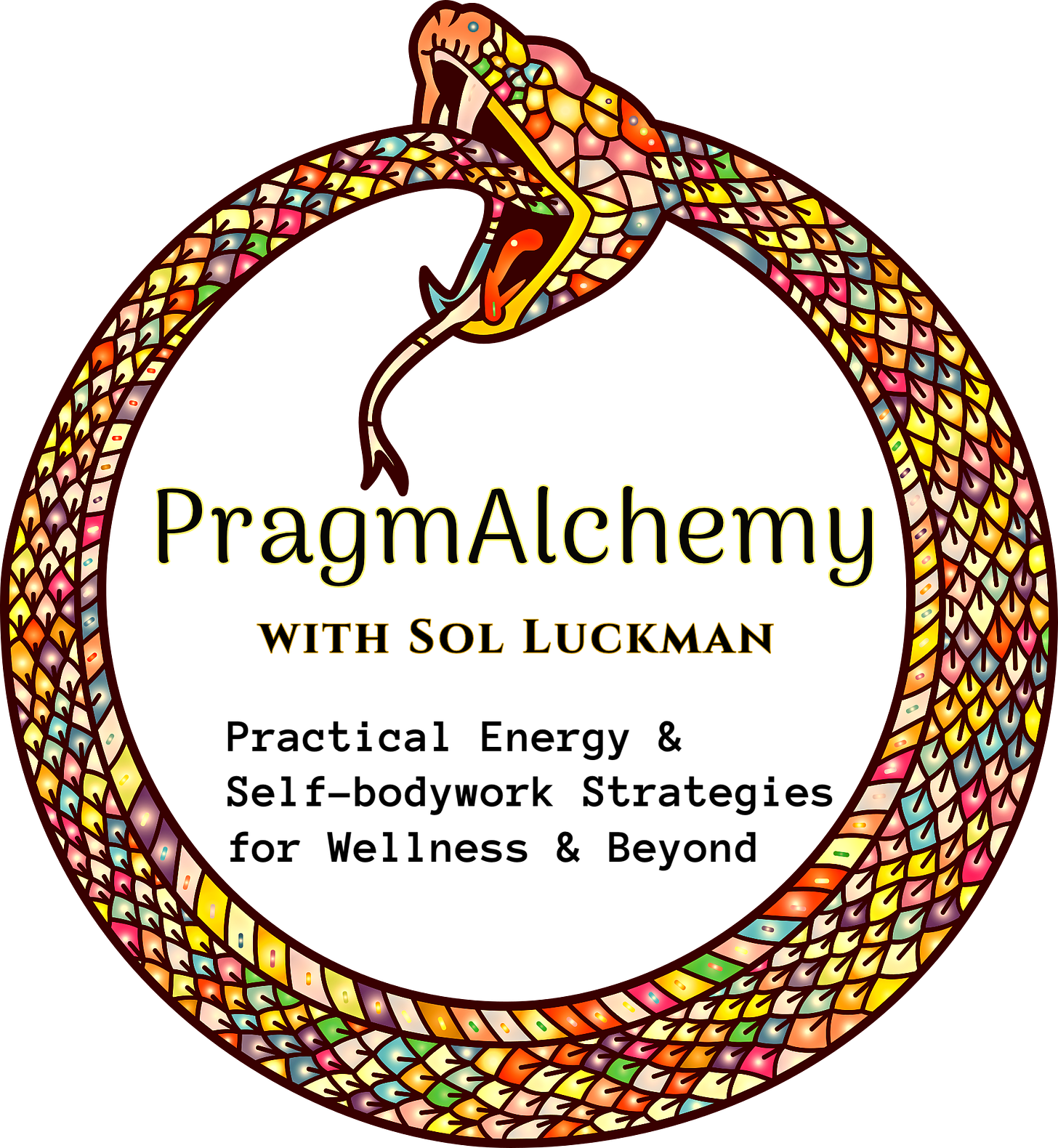
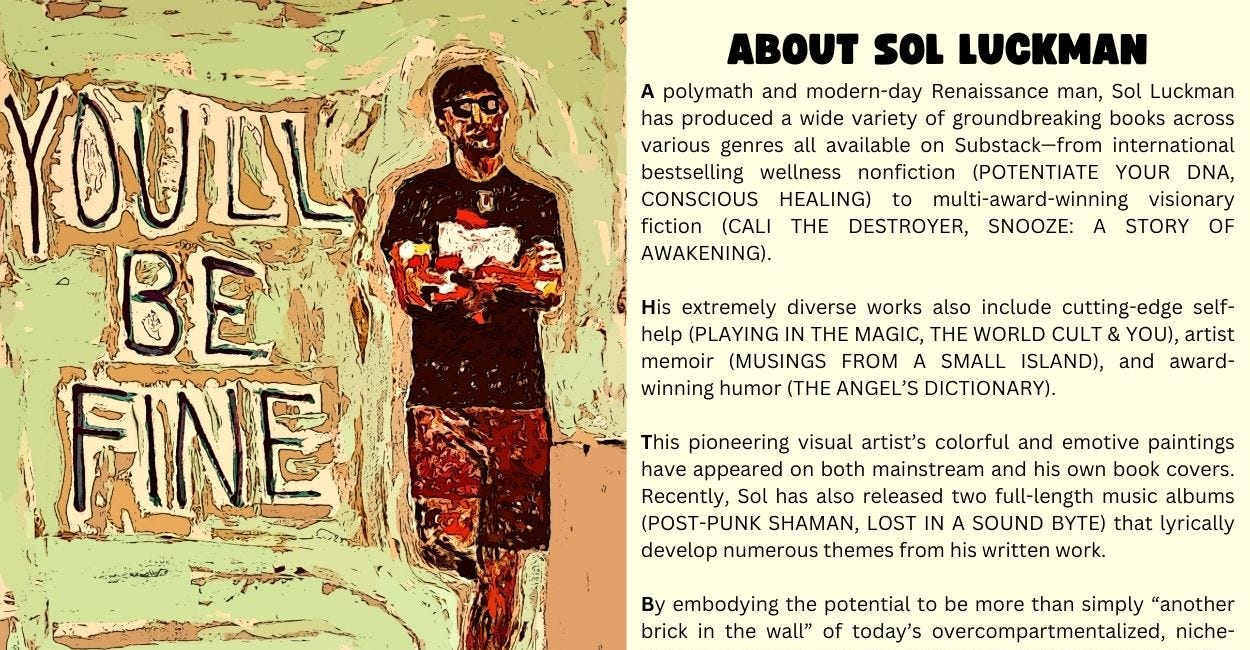
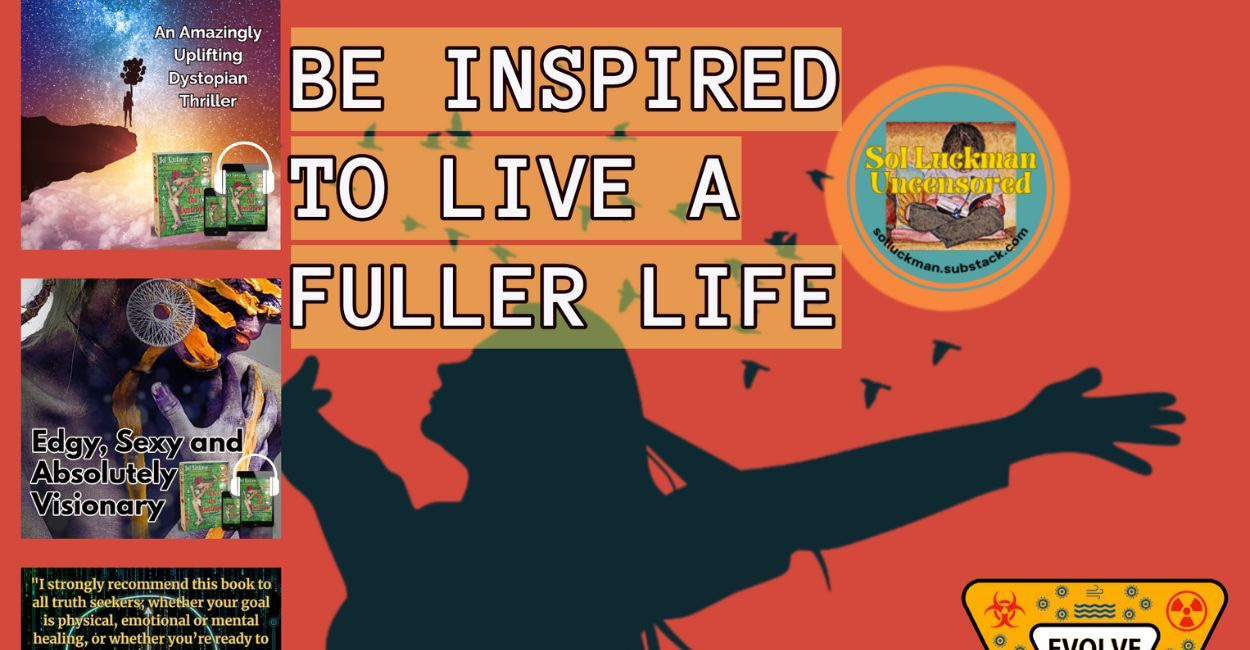

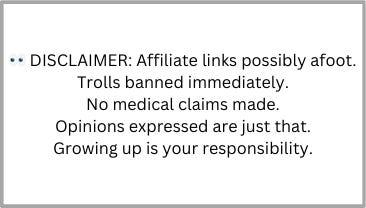
OMG, if people recognized they're reflecting back their own shadows when they get emotionally charged by other people. We would all be enlightened!! 😲
Ooh Sol, there’s so much to read. My youngest daughter is gifting me one of your books for Christmas. I anticipate holding that book in my hands. 😊